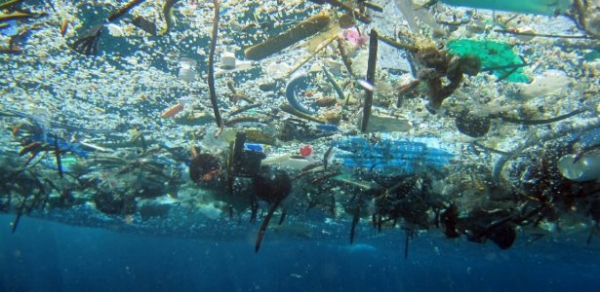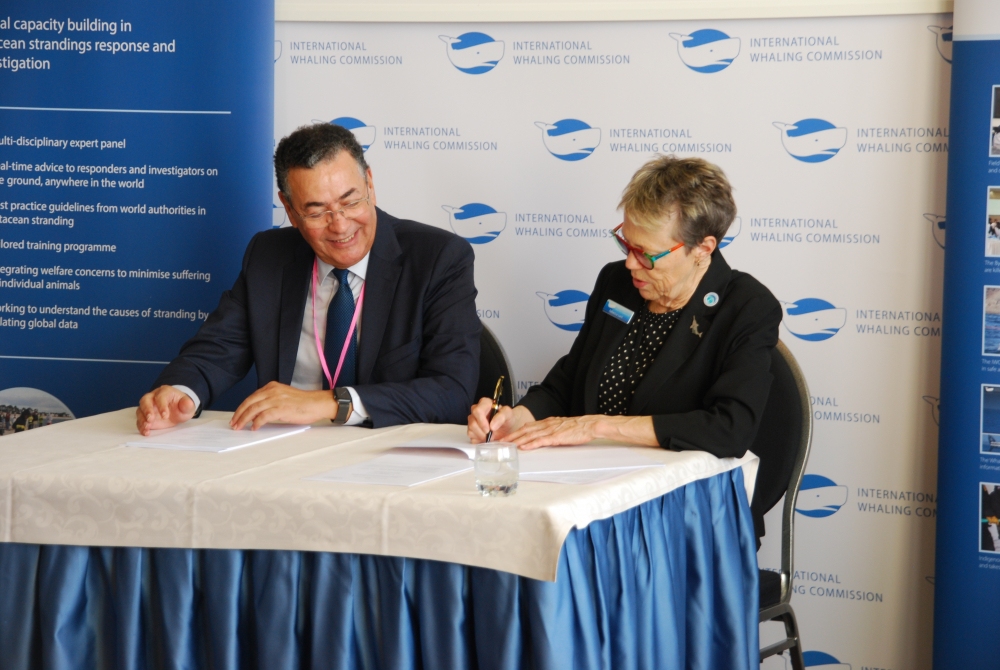A challenging day ended with a consensus Resolution on Marine Plastics. Plastic pollution can impact cetaceans in different ways and the IWC has already undertaken work to understand and address the threat. This Resolution highlights the transboundary nature of the threat and need for collaboration at international and multi-disciplinary levels.
Absence of some governments from the room and subsequent debate regarding quorum and handling of the Schedule Amendment on the South Atlantic Sanctuary prevented a vote taking place and resulted in Commission agreement to develop proposals to clarify the rules related to quorum and attendance. These proposals will be the first agenda item at the next meeting in 2024 and will be discussed before the Commission is asked to take any decisions.
The proponents of Resolutions on Food Security and Implementation of a Conservation and Management Program for Whale Stocks both reported constructive discussions and further intersessional work required in order to bring the proposals back to the next Commission meeting. Decisions were not sought on either Resolution.
Partnership was an important theme of the conference again today with the signing of a Memorandum of Understanding between the IWC and COMHAFAT, the intergovernmental organisation promoting fisheries co-operation between African States bordering the Atlantic. The MoU aims to formalise and strengthen existing collaboration, including data collection & scientific research. Capacity building features prominently in the MoU's proposed activities with workshops planned on the design of at-sea surveys, abundance estimation, and entanglement response. A 6-week internship pilot programme is also currently underway with a Moroccan scientist seconded to the IWC Secretariat. The MoU was signed by the Executive Secretaries of COMHAFAT, Abdelouahed Benabbou, and IWC, Rebecca Lent.
Details were also confirmed for a new partnership on ecosystem services research. The IWC Scientific Committee and the Convention for Migratory Species will hold a joint workshop, modelling the role of whales in the ecosystem and building on previous work by both organisations. The IWC has long recognised the importance of this topic. In 2021 the IWC held a virtual workshop to review existing economic and social valuation techniques for the ecosystem services provided by cetaceans, and identify potential new methods for assessing their contributions. Whales capture carbon in the ocean ecosystem in the same way that trees capture carbon in the terrestrial ecosystem. Whale excrement performs a second important service, acting as a fertiliser for phytoplankton, a microscopic creature that lives at the ocean’s surface and is very effective at both capturing carbon and releasing oxygen. The whale’s waste contains the iron and nitrogen that phytoplankton need to grow. Whales feed in deep water and come to the surface to breathe, bringing these valuable minerals up to the phytoplankton in a process known as ‘the whale pump.'
The meeting concludes tomorrow.


